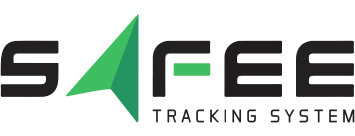Journey Management System: Smarter Routes, Safer Drivers, Lower Costs
Managing vehicles today requires more than GPS tracking. A fleet management system combines safety, compliance, and cost control into a single solution. With online fleet management software, businesses can optimize routes, protect drivers, and monitor every journey in real time. Whether you run a logistics fleet, mining operation, or delivery network, a robust vehicle fleet management system keeps operations efficient, compliant, and future-ready.
Why Your Business Needs a Journey Management System
Fleet managers face growing challenges: driver safety, fuel efficiency, and regulatory compliance. The journey management system automates these critical processes, delivering measurable value:
- Safer journeys with live driver and vehicle monitoring.
- Efficient scheduling through pre-planned routes and automated approvals.
- Simplified compliance with transport laws and safety regulations.
- Emergency preparedness via proactive risk assessments.
- Consistent driver policies across all vehicles and regions.
With a smart fleet management system, companies gain full visibility, stronger safety measures, and reduced costs.
Lower Costs with Online Journey Management Software
Cutting operational expenses is one of the biggest advantages of adopting online journey management software. By digitizing journey planning and automating fleet operations, businesses can unlock savings at every level:
- Fewer trucks required → Optimized routes reduce time wasted, cutting fuel and maintenance costs.
- Smarter load allocation → Balanced distribution avoids overloads, saves fuel, and improves capacity usage.
- Better delivery coordination → The fleet management system sequences deliveries to minimize delays.
- Warehouse synchronization → Align fleet schedules with warehouse hours to avoid bottlenecks and downtime.
Simply put, a cloud-based fleet management system helps you do more with fewer vehicles while increasing profitability.
Key Features of the Journey Fleet Management System
A modern vehicle fleet management system offers much more than tracking—it delivers automation, compliance, and risk management:
Journey Risk Assessment
Evaluate driver readiness, vehicle health, and road conditions before each trip. Automated approvals ensure only safe, compliant journeys move forward.
Route Optimization & Geofencing
Plan cost-efficient routes that factor in traffic, weather, and regulations. Geofencing alerts you instantly if vehicles leave approved paths—keeping your fleet secure.
Real-Time Journey Monitoring
With online fleet management software, managers gain live visibility into vehicle location, driver behavior, and potential delays—allowing faster decisions and improved safety.
Alerts & Dynamic Reporting
Get automated reports on journey performance, driver compliance, and vehicle efficiency. Configure instant alerts for speeding, fatigue, route deviations, or geofence breaches.
Seamless Integration with Platforms
The fleet management system integrates with government and industry compliance platforms (such as Wasl in Saudi Arabia) and connects smoothly with ERP or logistics systems.
The Future of Fleet Operations with Journey Management Systems
The transportation industry is moving toward digital-first solutions. The journey fleet management system ensures your business is not just keeping up but staying ahead:
- Automated journey approvals
- Predictive analytics for smarter planning
- Driver safety tools and risk management
- Cloud-based scalability for growing fleets
Adopting advanced online fleet management software means fewer risks, lower costs, and better compliance—all in one solution.
Upgrade your vehicle tracking system with journey management system today.
Frequently Asked Questions (FAQ)
What is a fleet management system?
A fleet management system is a digital platform that helps businesses track vehicles, manage drivers, optimize routes, and ensure compliance with safety regulations.
How does online fleet management software work?
Online fleet management software is cloud-based, allowing managers to monitor fleets in real time, automate approvals, generate compliance reports, and receive alerts from anywhere.
Why is a vehicle fleet management system important for safety?
A vehicle fleet management system conducts risk assessments, monitors driver fatigue, and provides real-time alerts to reduce accidents and improve driver well-being.
Can a fleet management system reduce costs?
Yes. By optimizing scheduling, fuel usage, and asset utilization, a fleet management system lowers maintenance, labor, and fuel expenses significantly.
Does online fleet management software integrate with other systems?
Absolutely. Most modern online fleet management software integrates with compliance tools, ERP systems, and logistics platforms for seamless fleet operations.
Is a vehicle fleet management system suitable for small businesses?
Yes. A vehicle fleet management system benefits both large enterprises and small fleets by providing scalability, cost savings, and improved safety measures.
